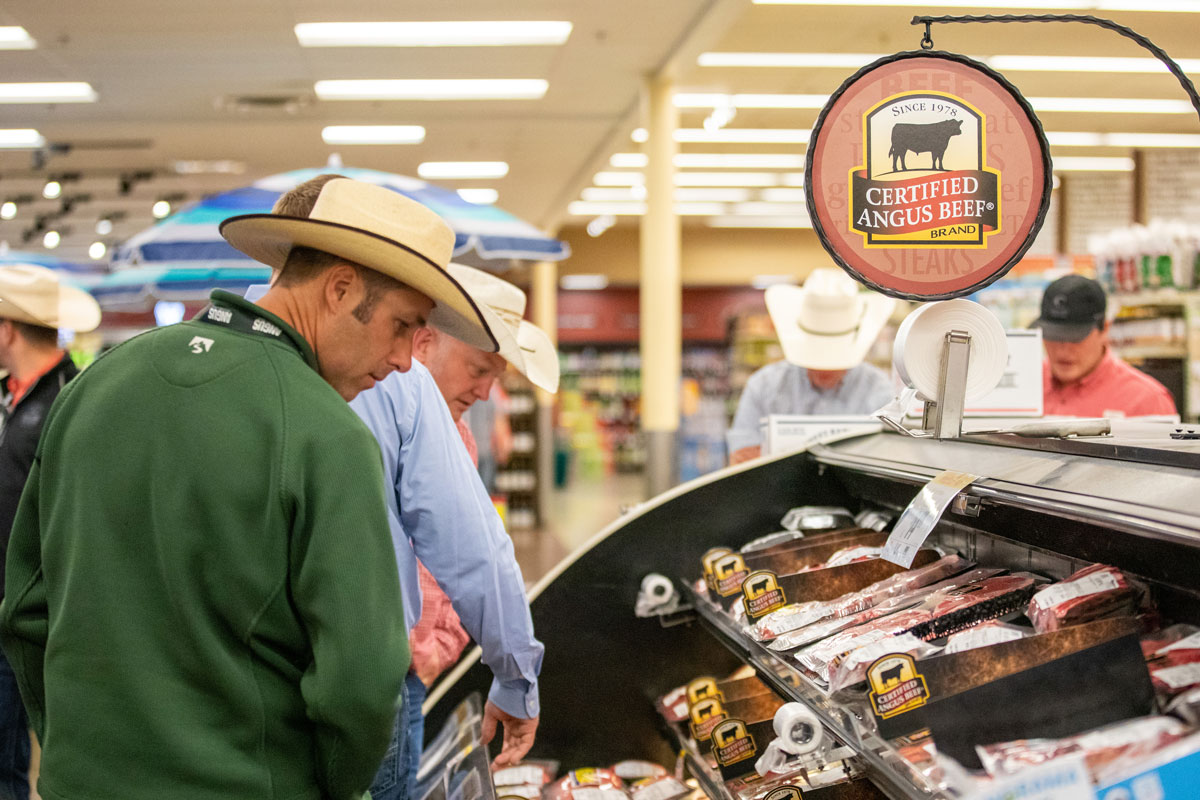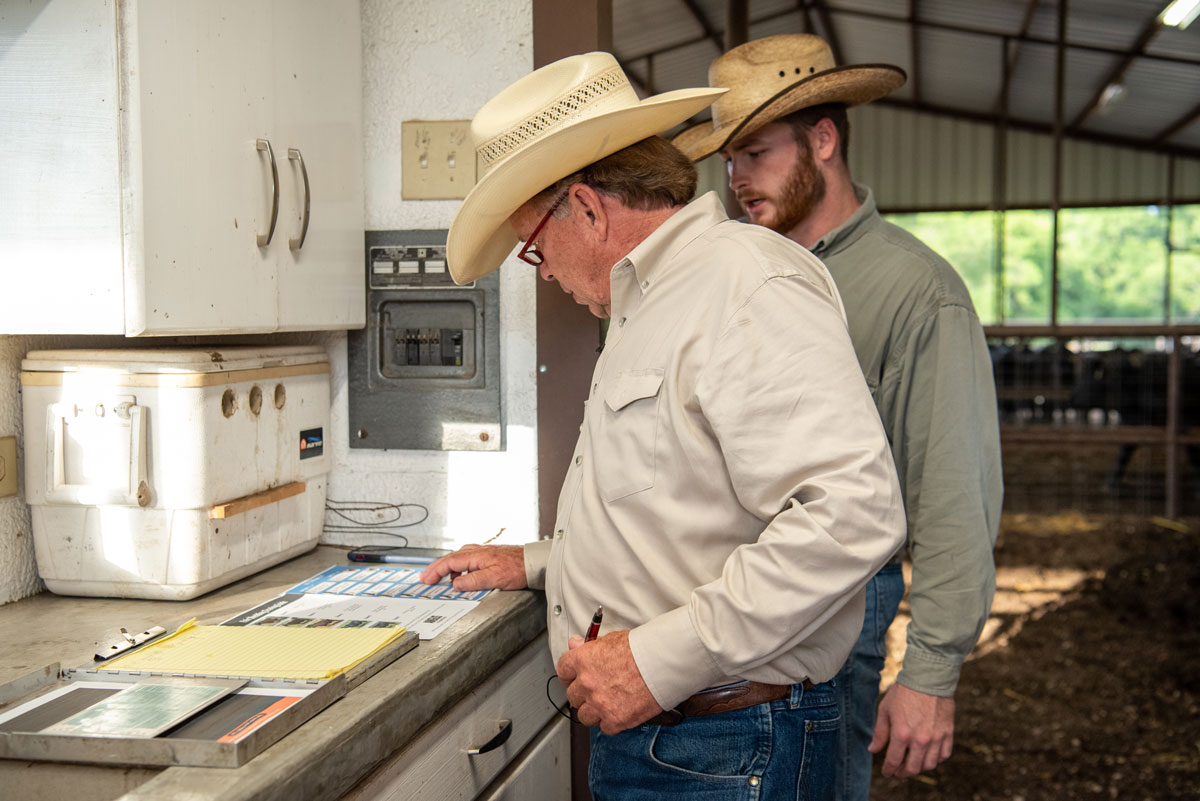
Sustainability Cents
Is the buzzword an opportunity for added beef value or a risky investment?
By: Morgan Boecker
February 2022
Results are required for viability. A live calf, a healthy rain, a black bottom line — tangible things necessary to maintain a ranch.
Sustainability is an all-encompassing term for social, environmental and economic business needs. The popular, updated term describes many of the same best practices cattlemen have put to work for generations.
It’s getting a lot of new attention, and not just from popular press. In 2020 more than $30 billion were invested globally in sustainability financing and bonds.
“How can we make the most of this?” asks Dustin Aherin, former vice president, animal protein analyst at Rabo AgriFinance, now director of strategy for Tyson Fresh Meats. “Because it’s not going away. It’s worth evaluating how we can position ourselves to capitalize on it in the future.”
Aherin says carbon credits may provide value, but the real promise is in the transfer of data and the power of brands to help cattlemen capitalize on their information.
Customer Goals
Food businesses (packers, grocery store chains, food distributors and restaurant groups) are quickly setting goals. However, their ability to successfully meet those targets relies on what the supply chain can deliver.
Three of the four largest meatpackers have announced emission reduction targets. JBS committed to net-zero by 2030, while Tyson aims for carbon neutrality by 2050. These commitments include the participation of the entire beef value chain down to the kernel of corn cattle consume.
While few have plans on how to get there, there is money driving progress. Cargill invested $20 million into research projects to discover new technologies and strategies that reduce water use and emissions.
Walmart is targeting zero emissions by 2040, getting to 100% renewable energy sources by 2035. Giant Eagle, a Certified Angus Beef ® (CAB®) brand retailer with stores across Pennsylvania, Ohio, Indiana, West Virginia and Maryland, has set a goal of net-zero emissions by 2040 with plans focused on sustainable product sourcing.
Continued attention on sustainability is causing food producers, brands, marketers and retailers to showcase good work and potential climate solutions. Without action now to benchmark and showcase improvement, change may come in the form of regulations.
“If we can’t prove that we’ve made a certain amount of progress, I think there’s a real risk,” Aherin adds. “I don’t know the timeline, but I don’t want to find out either.”

Consumer Perception
Do consumers really care?
A subset of them do, says Nicole Erceg, director of communications for CAB, but it’s not a niche market like organic or natural.
“I’d compare it more closely to the war on fat,” she says. “Research is showing this is something that’s going to have a long-lasting effect on consumption across different generations of our consumers. Unless — like the cattle and beef industry made changes that boosted consumer satisfaction to solve the issues of that era — we respond to the challenges of this one.”
Aherin agrees a small group of consumers will pay for some sustainability attribute, while the vast majority of beef consumers will still base their decisions on quality, safety and price.
Unlike some other consumer misperceptions, this isn’t simply a myth to be busted, Erceg says. Consumers want to vote for a better world with their dollars, and those selling beef want to communicate that their product is the right choice.
It is a lot like the relationship breeders have with their bull buyers, Erceg says.
“If you do not have the genetics that your customer needs, they’re going to go to your neighbor. If you don’t have the type of animal that they’re looking for, they’re just not going to purchase from you anymore,” she explains. “It’s the same thing with our consumers and our customers — and customers is the big one. If we cannot deliver on these sustainability metrics that they need to be able to either market on or communicate to their customer base or their stakeholders, then they’re going to go to someone who can and it’s not going to be us.”
That means either turning to a competing beef program, a competing protein, or worse.
“The reason people are switching to alternative proteins isn’t that they don’t want to eat meat. They love the taste of meat. It’s delicious,” Erceg says. “They just want it without any worry about animal welfare or environment. We can deliver on that today; we just need to continue to prove it with data, showcasing progress tomorrow.”
If you like this, also read the summary from a 2021 Angus University panel: Producers Can Influence Sustainability.
CAB partners, such as grocery stores, steakhouses, chefs and food distributors, ask the brand to help demonstrate a sustainable story.
According to consumer research done by the National Cattlemen’s Beef Association (NCBA), about half of consumers trust farmers and ranchers as a source of information on how beef is raised. However, for other consumers, proof of production practices and management decisions may be required to maintain or gain trust.
The same research shows roughly half of consumers change their behavior based on sustainability factors. Only 16% say they don’t care about the topic.
Chefs like Lamar Moore look to source local, sustainable products that they feel good about serving. It’s how he chooses suppliers for Eleven Eleven restaurant in Chicago, Ill., where he currently uses CAB.
“It’s being able to understand how to take what we call pasture to the plate and sharing that story with our guests about the farmer,” he says. “We’re constantly getting things fresh and working to understand how the cattle are raised and the families who raise our beef.”
For him, it’s about family — both the ones enjoying his food and the ones raising his beef.
“It’s really important for us to be connected with ranchers and the rest of the supply chain,” says David Norton, North American president of specialty meat and seafood at Sysco, “Because collectively we can help solve the sustainability challenge versus being a recipient of top-down decisions.”
Simply put, sustainability demands are a request for more communication around shared values.
“We don’t want people to feel bad because they enjoyed a good steak,” he says.

Where Cattlemen Can Start
Angus breeders already have an advantage as big data collectors in the cattle industry. There are already systems in place.
“The work remains in quantifying and documenting these metrics,” Aherin says. “Then, how we trace and share those metrics up and down the supply chain.”
For the cattleman, meeting climate goals, consumer desires and brand-building opportunities need to make cents.
“The one thing that I can suggest producers start doing today is capturing as much information as you can on your resources, feed efficiency and management practices,” Aherin says.
He also recommends cattlemen continue to bring ideas and potential solutions to the table.
“When I think about some of the innovative, successful ideas that evolved our supply chain over the last 40 or 50 years, one of them was CAB, the other is value-based grids,” Aherin says. “Both of those ideas came from producers and producer-level organizations to their customers. So, focus on understanding what our customer wants and what they need to hit these targets and sustainability goals. Cattlemen know how we operate and what we can do. Don’t be afraid to come to customers with ideas on getting them to their targets. And then maybe that gives a little opportunity for negotiation, a little more value for you at the table.”
This story was originally published in the Angus Journal.
You May Also Like…
Raised with Respect™ Rewards Producers with Current BQA Certificates
Taking care of your herd is part of the job of every stockman, and it’s the right thing to do. While you’re not committed to cattle care for recognition, you could be rewarded for holding a current BQA certification. Through two incentive opportunities, CAB and Sysco are recognizing producers who go above and beyond to show commitment to their herd.
Noble Research Institute and Certified Angus Beef Launch Partnership Centered on Promoting Land Management for Livestock Producers
Land Stewardship, launching November 2024, is an extension of Noble’s educational curriculum and offers an introduction to soil health principles and its effects on ecosystem processes. This free, online program is available for producers of all sizes and locations to gain insights into healthy soil, better grazing animal performance and a more resilient and profitable operation.
What’s Good for the Cattle, Is Good for the Wetlands
JY Ferry & Son, Inc., named the 2024 Certified Angus Beef Sustainability Award winner, exemplifies how sustainability in agriculture can bridge quality beef production, land stewardship, and wildlife management. At JY Ferry & Son, what’s good for the cattle is good for the wetlands—and good for the next generation of this multi-generational family business.



